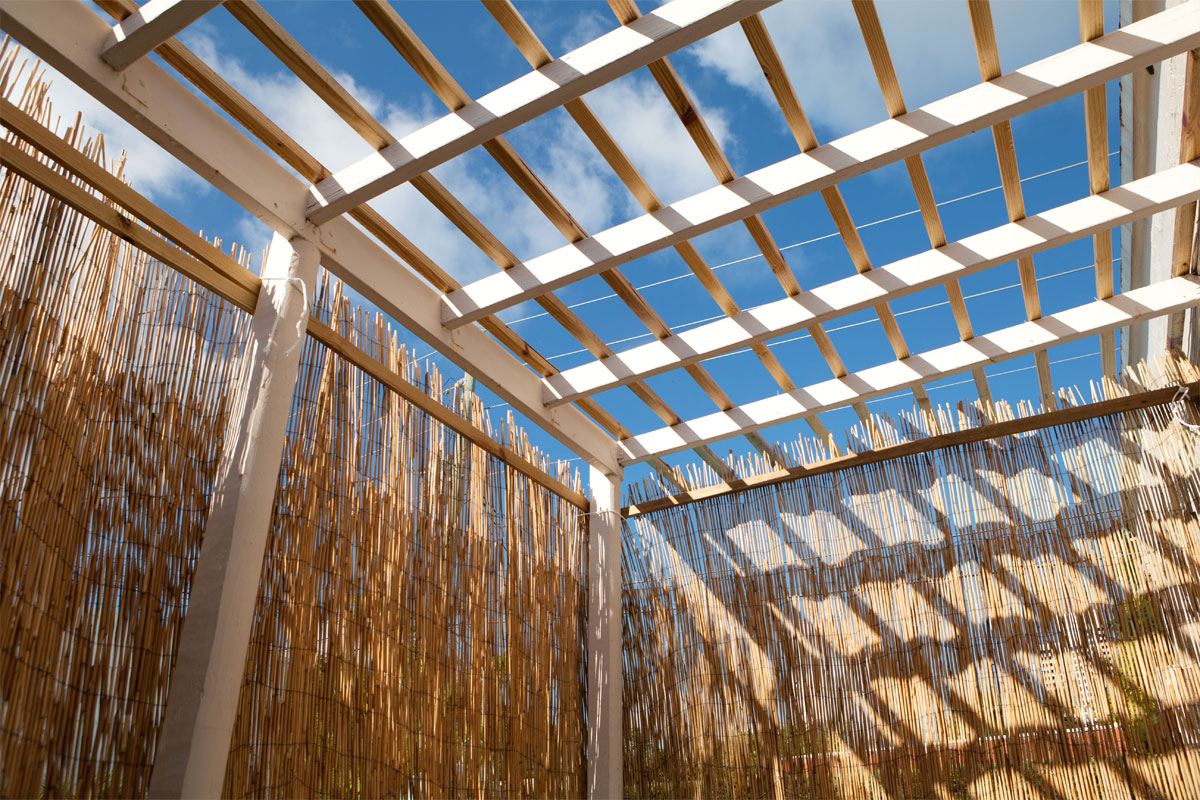I was raised in a Jewish but not extremely religious household. We went to Sunday school, had a pre-sliced challah on Friday nights with dinner, showed up for services on Rosh Hashanah and Yom Kippur.
I always longed for more Jewish rituals and observance. I especially loved Sukkot. Growing up in Pittsburgh, the holiday always felt like the beginning of fall. The leaves were turning colors and the air had that crisp feeling.
At Sunday school, I was so excited to spend class decorating the sukkah in the courtyard that remained empty the rest of the year.. Nothing fancy. Paper chains. Gourds strung from the branches that stood in for the temporary structure’s roof.
My parents never built one, but my best friend lived next door and her family was Orthodox, and they always built their sukkah on the balcony off of the kitchen. I loved being invited over. We’d put on our fall jackets and eat lunch outside in the sukkah, her mom ushering us inside before we finished because it was too chilly. But I always wanted to stay. It was there in that sukkah that I felt connected to Judaism, to the Jewish people.
When I first got married and was living in downtown Washington DC, we built a sukkah on the fire escape. You couldn’t stand inside it. We would crawl in and out from the floor to ceiling windows in the living room — the everything room — of the divided former mansion that was our apartment. I liked sitting and looking up through the branches to see the starless, urban sky. In that little sukkah, I felt connected not to my neighbors but to my tradition.
When we had our first child, we moved from the apartment to a small rowhouse still in the city. On its tiny patio, we built a sukkah. I had been dreaming of a beautiful, ornate structure with its walls constructed of flowy sheer fabrics that would move with the air. Instead, we bought a sukkah-in-a-kit, the kind that was easy to build. Its blue canvas walls weren’t exactly stunning, but I don’t think my boys cared about that anyway. We decorated it with handprint pictures, fake etrogs and, of course, gourds. Although quite imperfect, the sukkah-in-the-box was there to create an experience for my children that I didn’t have.
But stories don’t always go as we plan. When my youngest was five, my husband left us and moved across the country. So much changed in an instant, with one parent responsible for all pick-ups and drop-offs, back-to-school nights and activities. I tried to create normalcy for my boys. Sukkot came around and I found the sukkah-in-a-kit. Although supposedly easy to build, I had never been the one to build it. But with a mallet and a step stool, my oldest at 10 years old told me to step back as he put it together. Our tall Italian neighbor came over to help unroll the bamboo roof. We decorated the sukkah. Invited guests. We felt like a complete family, just the three of us.
During the divorce proceedings, when I couldn’t argue anymore and gave in just to finish the process, my ex-husband got the kids for the holiday and the custody of the sukkah that had been in the back of my house the years that he was gone.
The first year without it, I mourned that sukkah-in-a-kit. I no longer yearned for the sheer fabric walls, but I wanted the time with my boys in that sukkah. The sukkah that we had built as the three of us. The sukkah where we had begun to rebuild our lives and redefine ourselves as a family. The sukkah was more than ugly blue canvas walls. It was the loss of my special time with my boys — of our new family together, one that could withstand the cold weather of the incoming fall.
Last year, during the week of Sukkot, I picked my boys up after all their late school activities. While we were waiting for his brother to finish, my youngest and I went to get pizza for dinner. In the strip mall parking lot, we sat in the restaurant’s sukkah that was constructed from blue tarps with no decorations. As we sat there eating pizza and talking about his day, I felt the crisp breeze. In that moment, I remembered how I felt when I was a little girl. My love for the holiday and my connection to the Jewish people.
And I remembered how Sukkot rebuilt my family.








